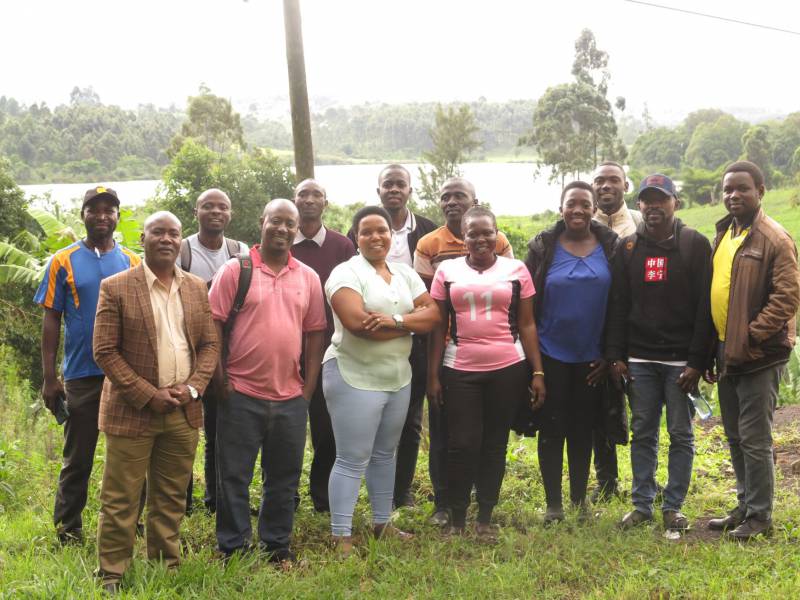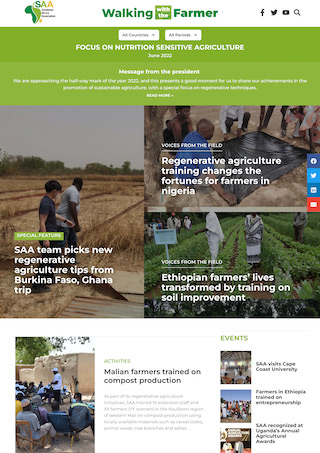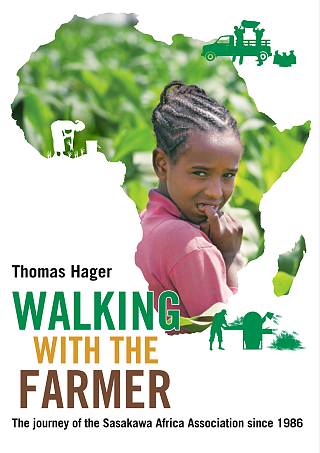Strengthening Agro-ecology and E-extension through Capacity Building in Uganda

SAA in partnership with Mountain of the Moon University (MMU), conducted a series of training sessions from September 22nd to October 2nd, 2024, as part of the Rwenzori Agroecology Project (AEP11), a key initiative aimed at enhancing agroecology research, education, and science communication in the Rwenzori region. The project is funded by the Australian government and focuses on promoting sustainable agriculture through innovative research, capacity building, and the integration of Information and Communication Technology (ICT) into agricultural practices.
The training activities were structured to provide both theoretical and practical knowledge to a broad range of participants, including university students, faculty, CBFs, and local farmers. A major focus was placed on enhancing the capacity of participants to use digital tools (e-extension) to facilitate agricultural service delivery, while also promoting regenerative agriculture concepts.
The week-long training program at Mountain of the Moon University (MMU) began with SAA staff as guest lectures where master’s students in agriculture were introduced to regenerative agriculture and e-extension. Led by SAA staff Jonathan Katende and Kyomugisha Christine, the sessions delved into how regenerative agriculture blends traditional farming knowledge with modern scientific techniques to restore soil health, enhance biodiversity, and reverse environmental damage—all while maintaining farm productivity. The lectures also identified key challenges, including farmers' limited knowledge of regenerative agriculture technologies, the high initial costs of adoption, and restricted access to necessary equipment.
SAA's RA coordinator, Mr. Katende Jonathan, who facilitated part of the training, remarked: "The shift toward regenerative agriculture is essential for the future of farming in Uganda. By adopting these practices, farmers can not only improve their yields but also contribute to environmental conservation. It’s a win-win for both productivity and sustainability."
During the training sessions, participants explored various e-extension platforms, such as the Jaguza livestock app, which aids in livestock management, disease detection, and market accessibility. Other platforms like M-Omulimisa, EzyAgric Farmer, Akaboxi, AgriShare, i-KnowFarm, and Accuweather were also introduced, offering participants a comprehensive understanding of how digital tools can revolutionize farming practices and enhance productivity.
 SAA’s Christine Kyomugisha introduces the youth group on small-scale mechanization in RA.
SAA’s Christine Kyomugisha introduces the youth group on small-scale mechanization in RA.The training also introduced youth farming groups from Karangura Sub County to small-scale mechanized equipment; through hands-on sessions, participants learned how tools like Jab planters and power tillers can reduce labor and production costs. The SAA staff showcased how these machines could boost efficiency while creating job opportunities for the youth opening new possibilities for scaling up farming practices and improving livelihoods.
A significant achievement of the training was the discussion around integrating e-extension platforms into MMU and Uganda Martyrs University (UMU) curricula. Professors emphasized that digital tools are key to modernizing agroecological research and extension services. The universities plan to include e-extension in several course units and develop ICT staff to support students in creating their own digital solutions for agriculture.
Field visits were also conducted to agroecology farmers in Kabambiro, Kamwenge District, to develop training videos on sustainable farming practices. These videos will be uploaded to e-extension platforms, demonstrating the practical applications of agroecological principles and encouraging other farmers to adopt them.
Through this initiative, SAA remains committed to building on these results to ensure that farmers, students, and staff across the Rwenzori region are equipped with thes skills and knowledge necessary to navigate the challenges of modern agriculture while maintaining the ecological balance of their communities. The results of this training will resonate for years to come, not just in the productivity of the farmers involved, but in the health and sustainability of their land and livelihoods.
SAA Publications

E-newsletter
"Walking with the Farmer"
SAA publishes a bimonthly e-newsletter reporting on SAA activities.

SAA history book
"Walking with the Farmer: The journey of the Sasakawa Africa Assoication since 1986"
This book chronicles the history of SAA from its inception to the present.

Annual Report
Annual Report FY2023
Annual Report FY2023 is available here.




